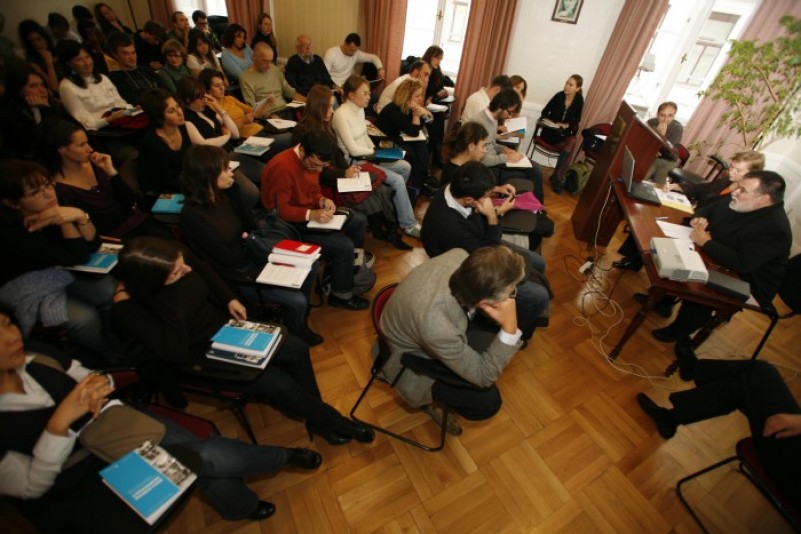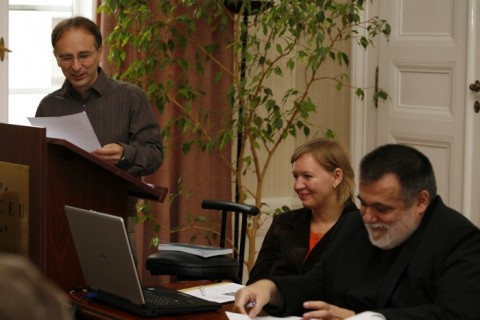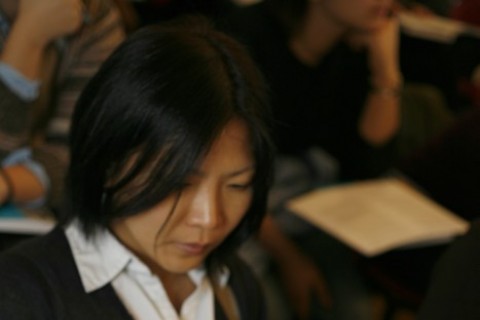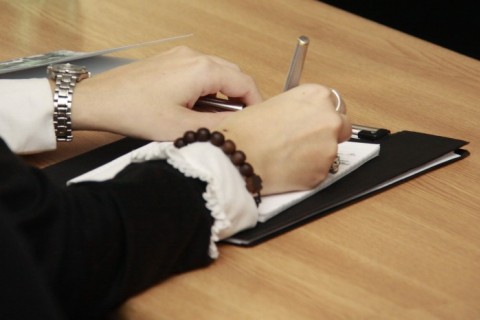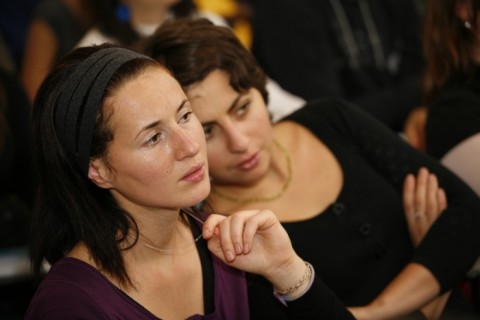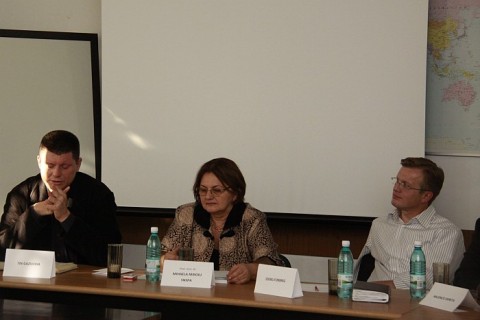Reclaiming Democracy – last two panel discussions held
Graz. For the 9th and 10th time the book “Reclaiming Democracy – Civil Society and Electoral Change in Central Europe” was presented in the frame of a panel discussion in Bucharest and Budapest. These two events marked the end of a very successful guest lecturing series that portraits how people in Central and Eastern European countries fought with energy and courage to reclaim their democracies.
“New democracy does not emerge easily”, says Vaclav Havel in the preface of the book. “It is, indeed, an ongoing process, one that has not been completed even now.” Democracy is more than just a set of rules. It also depends on the day to day commitment of people to fill it with life. Often it’s the so called civil society that fosters or initially allows the democratic development of its country. The anthology “Reclaiming Democracy”, financed by ERSTE Foundation illuminates the role of civil societies inside various countries of Central and Eastern Europe. In order to communicate the insights of the book to a broader audience WUS Austria organized several panel discussions. Those were held at universities in Belgrade, Szedged, Podgorica, Bratislava, Brno, Cluj-Napoca, Kiev and Zagreb and just recently during the 14th and 15th October in Bucharest and Budapest.
At the National School of Political and Administrative studies in Bucharest, the students and other participants of the panel discussion rated this event as either excellent or very good. They appreciated the possibility to talk to the authors as well as to have the chance to have an open discussion about the presented topics. A total of 34 people attended the event; many amongst them were PhD students of Political Science. The discussion was moderated by Prof. Mihaela Miroiu.
As the evaluation showed, the persons who attended the discussion panel at the Central European University (CEU) in Budapest generally were very satisfied with the event, too. They were impressed by the direct testimonials from the participants of political events and the various methods to mobilize the masses for a cause. Besides, participants liked the interactivity of the discussion and the hands-on experience the book communicated. Therefore it was no surprise that a great majority found the overall panel discussion good to excellent. Similarly, more than three quarter of the participants found the format of the panel discussion and to book presentation good or excellent for conveying such topics to students. The participants also found the book “Reclaiming Democracy” interesting since a large number of participants claimed they would like to use the book further in their studies.
All in all the ten panel discussions as well as the book as such were very well rated by the several audiences. This is not only a success for the authors and the guest lecturers but is also a clear sign of the high interest in these political topics. WUS Austria and ERSTE Foundation are very happy that with the book “Reclaiming Democracy” and the panel discussions they were able to contribute a little bit to the growth and development of the young but nevertheless strong democracies in the countries of Central and Eastern Europe.

